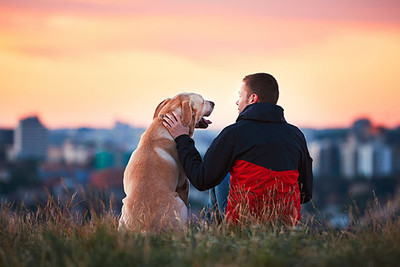Posted by K9 Active on May 23, 2023
Are you curious about what your vet or canine professional is looking for when they conduct a health check on your beloved dog? Or perhaps you're keen on understanding the early warning signs of potential health issues? This comprehensive guide will empower you with the knowledge to perform a health check on your dog at home in five simple, yet thorough steps.

1. Ear Health: The Silent Trouble Spot
Often, issues with a dog's ears can develop unnoticed. Certain breeds have particularly hairy inner ears, which can obstruct air circulation, leading to a buildup of bacteria and, in some cases, painful infections. To enhance airflow, groomers and vets frequently pluck a dog's ears.
Another common issue is an infestation of ear mites, which are only visible under a vet's magnifying tool. These mites can cause severe itching and emit a distinct odor. If your dog is excessively scratching its ears or discharging a sludgy substance, it's time for a vet visit.
2. Eyes: The Windows to Health
A healthy dog's eyes should be clear, with minimal discharge. When a vet examines your dog's eyes, they're checking for signs of clouding, indicative of potential cataracts. They're also ensuring that the eyes are clear and healthy overall.
3. Dental Health: More Than Just a Pretty Smile
A dog's dental health is crucial to its overall wellbeing. Clean teeth free from tartar buildup are essential to prevent dental diseases, which can be severe. Healthy gums should be a salmon pink color, and when pressed, the color should return quickly. Darkened or extremely pale gums can signal a problem. Regular tooth brushing is key to maintaining your dog's dental health.
4. Paws, Skin, and Nails: The Foundation of Comfort
Examining your dog's paws and nails, including dew claws, is vital. Long nails can alter a dog's stance and eventually affect its joints as the dog compensates to avoid pain. Skin checks are also important to identify parasites and other irritants. Be vigilant for sore patches, flea dirt, and ticks, especially during the summer months.
5. Anal Glands: The Unsung Heroes of Canine Comfort
Anal glands play a significant role in your dog's comfort and health. They can become impacted or infected, causing discomfort and soreness in the anal area. Vets can relieve impacted anal glands with a skilled squeeze, but infections require antibiotic treatment. Signs of anal gland issues include a swollen anal area, chewing on the back legs, scooting along the ground, and excessive scratching.
Regular at-home health checks will help you identify any concerning changes early on, potentially preventing severe problems from developing. Additionally, these checks will acclimate your dog to being handled, making vet visits less stressful for both of you.
If you're considering breeding your dog, these health checks become even more critical. They can help ensure your dog is in optimal health before breeding, reducing potential risks.
Remember, while at-home checks are beneficial, they do not replace professional vet checks. Always consult with your vet about your dog's health, especially if you notice any changes. The cost of a dog health check is a small price to pay for the wellbeing of your furry friend."
